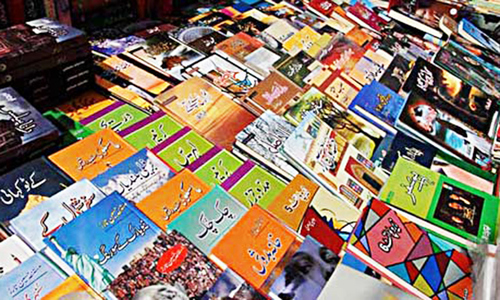ISLAMABAD: The United Nations Educational, Scientific and Cultural Organisation (Unesco) is of the opinion that Urdu being the dominant language in the multi-ethnic society through the school system is a choice of necessity but has frequently been a source of grievances linked to wider issues of social and cultural inequality.
A policy paper issued by the UN organisation to coincide with the observance of the ‘Mother Language Day’ on Sunday referred the multi-ethnic societies in Turkey, Nepal, Pakistan, Bangladesh and Guatemala and recommended ensuring that “children are taught in a language they understand”.
In Pakistan, the continued use of Urdu as the language of instruction in government schools, even though it is spoken at home by less than eight per cent of the population, has also contributed to political tensions, it says.
The paper says the post-independence government in the country adopted Urdu as the national language and the language of instruction in schools. This became a source of alienation in a country that was home to six major linguistic groups and 58 smaller ones.
The failure to recognise Bengali, spoken by the vast majority of the population in the erstwhile East Pakistan, was one of the major sources of conflict within the new country, leading to student riots in 1952. The riots gave birth to the Bengali Language Movement, a precursor to the movement for the secession of East Pakistan and formation of Bangladesh.
Both countries have continued to face language-related political challenges. In Bangladesh, where Bengali is the national language, non-Bengali speaking tribal groups in the Chittagong hill tracts have cited a perceived injustice over language as a factor that justifies their secession demands.
The policy paper argues that being taught in a language other than their own can negatively impact children’s learning.
Language can serve as a double sword, “while it strengthens an ethnic group’s social ties and sense of belonging, it can also become a basis for their marginalisation.
Education policy must ensure that all learners, including minorities’ language speakers, access school in a language they know,” Director of Unesco’s Global Education Monitoring Report, Aaron Benavot, says.
The paper said at least six years of instruction in the mother tongue was needed so that gains from teaching in the early years were sustained.
Education policies should recognise the importance of mother tongue learning. A review of 40 countries’ education plans finds that only less than half of them recognise the importance of teaching children in their home language, particularly in early grades.
Teachers need to be trained to teach in two languages and to understand the needs of second-language learners. Teachers are rarely prepared for the reality of bilingual classrooms, including with inclusive teaching materials and appropriate assessment strategies.
In many countries, large numbers of children are taught and take tests in languages that they do not speak at home, hindering the early acquisition of critically important reading and writing skills. Their parents may lack literacy skills or familiarity with official languages used in school, which can then reinforce gaps in learning opportunities between minority and majority language groups.
The paper recommended that curricula need to address issues of inclusion to enhance the chances of students from marginalised backgrounds to learn effectively. Textbooks should be provided in a language children understand. Classroom-based assessment tools can help teachers identify, monitor and support learners at risk of low achievement.
Published in Dawn, February 21st, 2016













































